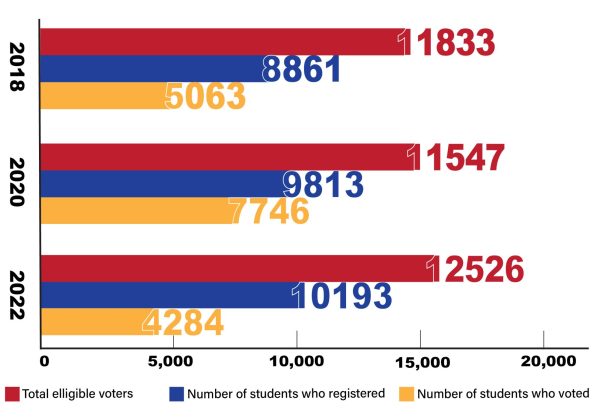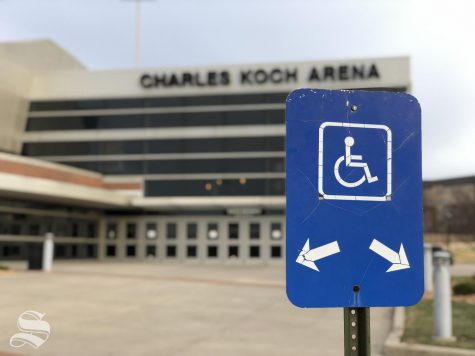Baseball is the bond that brings father and son together
At just about every home game, Johnny Coy will glance up in the stands and see his father. He’s always in the same spot, at the third window behind first base, nervously pacing back and forth hoping to see his son play a good game.
When the game is over, Johnny meets him in the baseball facility parking lot, who will congratulate him if he has a good game or gives him constructive criticism on what he could’ve done better.
Richard Coy, 62, is quiet and unassuming, but doesn’t mind making small talk with anyone who greets him. He stands at 6-foot-3 and weighs 210 pounds—he hardly has any grey hairs on his head.
His standard form of dress is just a regular white shirt and blue jeans. But occasionally he’ll break out an old outfit given to him by Johnny, who has outgrown his father by five inches.
“The only cool stuff he wears is the stuff I give him. He has a couple of Nike and Adidas shoes,” Johnny said.
That man went on to became the driving force and the architect behind Johnny’s collegiate career.
“He’s the one who put the ball in my hands when I was a baby and I pretty much owe everything to him,” the younger Coy said of his father.
Every minute that Johnny spends with his dad is a reminder to him to appreciate everything he has everyday. Johnny, a product of St. Joesph, Mo., transferred to Wichita State from Arizona State to be closer to his family after his father had a stroke.
The elder Coy has fought health issues for the better part of four decades. In 1978, he was diagnosed with liver cancer and to keep the cancer under control Richard injects needles about seven inches long in his hip. He also has had stainless steel heart valves put in his heart. To keep from experiencing major blood clots, he takes a blood thinner.
In 2005, he had a bad heart attack.
“They called all my kids to the hospital. I was down to my last hour—I thought I was dead,” Richard said.
Richard didn’t die, but he spent three months in the hospital with severe blood clots.
Currently, he is retired from being a factory worker at Quaker Oats, where he was employed for more than 30 years. Now Richard keeps himself busy as a substitute school teacher.
Richard instilled Johnny with mental toughness and love for sports at a young age.
He knew his son would be special when he started walking when he was six months old—Richard still has video of which he still views from time to time.
Richard introduced Johnny to the game of baseball by having him hit balls against the garage door off a tee.
“He would always find time to play ball with me and he pretty much taught me everything about the game,” Johnny said.
Young Johnny used to walk around his house with his ball glove waiting for his dad to get home. Once Richard came home, he would retrieve a big bucket of baseballs and throw him batting practice. Sometimes he would be exhausted from a long day at work.
But he told Johnny that if he wanted to be great he had to play everyday and he would help him get there.
“When your kid wants to play ball, I’m going to play,” Richard said laughing. “I knew he’d be good.”
If one were to sit down to listen to Richard, long enough, it sounds like he saw it all coming.
It shouldn’t be too surprising. After all, he was Johnny’s baseball and basketball coach until Johnny became a high school freshman.
“You could tell that he was a player when he was two and he was out there wearing my big glove, fielding groundballs and throwing to first base,” Richard said. “It was just part of his life. He knew he was going to play.”
When most people were star struck by Johnny’s athletic talent, it was his father that kept him grounded.
Johnny was 12-years-old when his baseball team played a pre-season game with the St. Joe Thunder, a team a few years older than Johnny’s. Johnny went 3-for-3 with a grand slam.
After the game Johnny walked with his dad to their car, proud of himself. But once he got in the car, it was apparent to Johnny that his father wasn’t as ecstatic as he was.
“He talked about how I didn’t pitch very well or how I messed up on a ground ball,” Johnny said. “It was good for me that he worried about the things I needed to improve on instead of the things that I was already good at.”
In the fall of 2008, Richard had another stroke. Richard was on a hunting trip and as he wandered farther into the terrain, he noticed his heart started to skip beats. And the right side of his body started to go numb.
Neither Richard nor Johnny knows how he drove himself home that night.
“I don’t know. I just made it,” he said.
Johnny received word of what happened a week later when he was at Arizona State.
“I was just hanging out and I got a call from my sister. She was real calm and said that everything was fine,” he said.
A week after he found out, Johnny decided to transfer to WSU.
His dad remains a mere three hours away in St Joseph. Occasionally Johnny will make it back to his home to visit his father.
He sometimes challenges him to a game of “Horse.” Johnny has yet to beat him when he takes all his shots inside 15 feet.
“He will stay right around the free-throw line and make 100 in a row,” Johnny said.
Richard taught Johnny about the game of baseball, but Johnny says his father taught him something else—don’t take anything for granted.
“It just puts everything in perspective about sports. It’s important but it’s not as important as your friend and your family,” Johnny said.
After all, Richard always knew his son would be special and Johnny always knew that his father would hold a special place in his heart.
“All the fun rides we had to the games and on the way back, just enjoying time with my dad and me pretty much,” Johnny said. “It was a blast, so many things we got to do together. It was great.”







